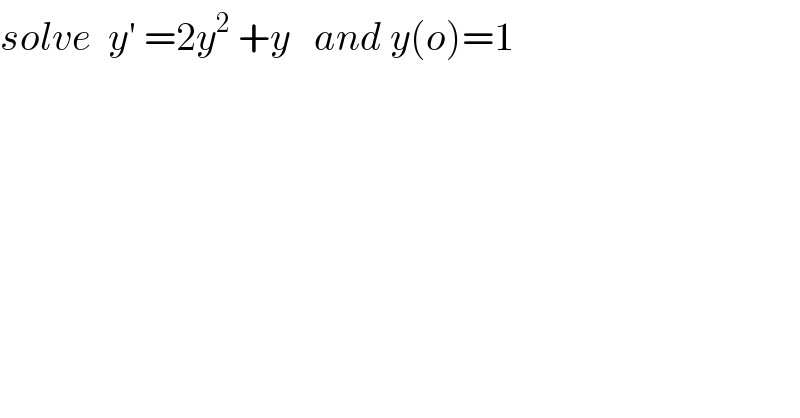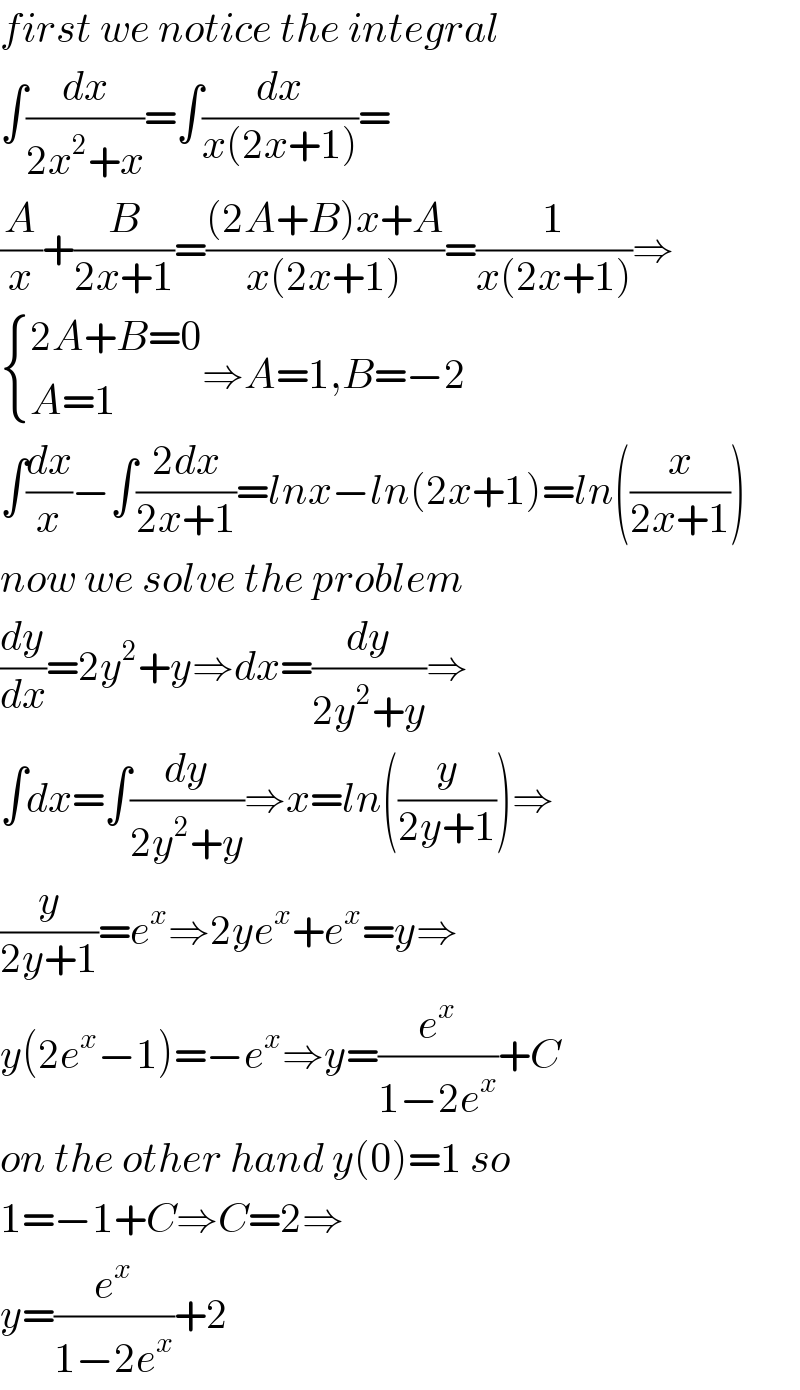
Question and Answers Forum
Previous in Relation and Functions Next in Relation and Functions
Question Number 57414 by Abdo msup. last updated on 03/Apr/19

Commented by kaivan.ahmadi last updated on 03/Apr/19

Commented by maxmathsup by imad last updated on 04/Apr/19

